For the most part, fans were hooked to every twist and turn that was unveiled over the course of this truncated seventh and penultimate season of HBO’s fantasy epic, Game of Thrones. From the opening scene, where Arya Stark poisons a roomful of Freys as vengeance for the Red Wedding, to the final one of the season where the Night King, mounted on a raised-from-the-dead Viserion, brought down the Wall, there were plenty of the big, edge-of-the-seat moments that had fans eagerly awaiting the next development in the tale. Daenerys bringing her dragons into the mix — first at the battle of Tumbleton against the Lannister armies (aka the ’loot train attack’) and later, beyond the Wall, when rescuing Jon and the others who had gone there to capture a wight — provided some of this season’s most exciting visuals. And yet, for perhaps the first time since it began airing in 2011, the criticism for Game of Thrones was perhaps as loud as the appreciation. As showrunners DB Weiss and David Benioff began to come up with their own material to conclude the tale (since George RR Martin is yet to write books six and seven in the A Song of Ice and Fire series), viewers felt that it simply couldn’t match up to the quality of the preceding seasons. The pacing seemed off — long stretches of time were devoted to what many viewers considered inconsequential scenes, while crucial portions (such as the developing attraction between Jon and Dany) were rushed. The rules of geography and time had seemingly been contravened by the storytelling (such as when Jon, Tormund et al were besieged by the army of the dead in ‘Beyond the Wall’) and once important characters had been sidelined (such as Petry Baelish). Several plot points felt like they had been shoehorned in (the wight capture scheme, for instance) just so the finale could be set up — the Night King getting his hands on one of Dany’s dragons, and therefore, circumventing the defenses of the Wall. [caption id=“attachment_3994935” align=“alignnone” width=“825”] 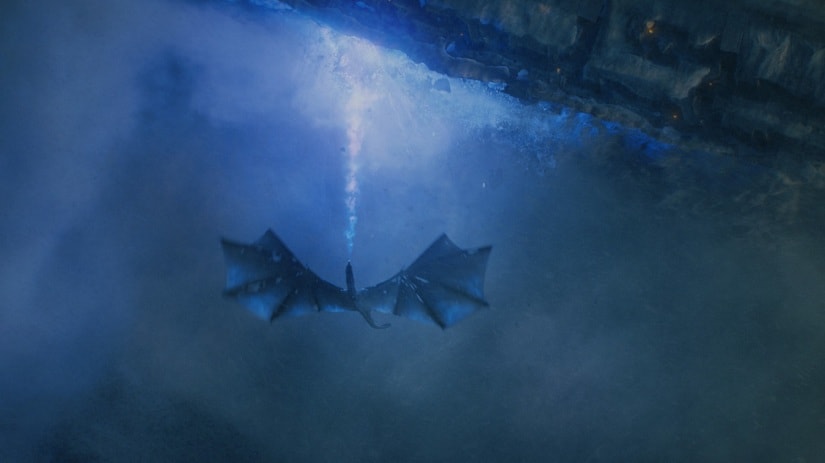 The Wall comes crashing down. Still from Game of Thrones season 7. Image via HBO[/caption] These are all valid concerns — although viewers were too invested in the story and the fates of these characters to let the aforementioned quibbles hold them back. Reportedly, the Game of Thrones season 7 finale drew more viewers than any episode of the series ever has before, even as some critics were saying ‘The Dragon and the Wolf’ would go down as one of the worst finales of the series. Sample grouses included: What was the point of the Dragonpit meeting — if the armistice wasn’t achieved? Cersei would never have agreed to it; surely all the others know that! What was even the point of capturing that wight, effectively endangering the life of Viserion, and giving the Night King the one powerful weapon he didn’t have? These questions — just as the ones over Jon and Daenerys’ incestuous relationship — overlook an important thing: the characters do not have the omniscience of the viewer. They operate with limited information. They certainly couldn’t have predicted what the outcomes of their actions would be, only hoped for the best. And even if there was little hope, some things still needed to be done — as Ser Berric expressed in ‘Beyond the Wall’: ‘Death is the only enemy. The first enemy and the last. The enemy that always wins, and yet we must fight it.’ This is in no way overlooking logical inconsistencies in the plot, but the criticism over ‘The Dragon and the Wolf’ is harsher than it deserves. And it may yet come to take its place among the best _Game of Throne_s season finales. As we’d mentioned in a previous post (where we recapped what happened in every _Game of Thrones_ season finale, from 1 to 6, ranking them from best to not-best ), the final episode isn’t usually one where a major action sequence/event takes place. Instead, it’s a way for the characters and viewers to step back, get some breathing space and come to terms with the events that took place in the previous episode. The big battles/shock twists are usually reserved for this second-to-last episode of the season. In season 1, the finale followed the episode in which Ned Stark was beheaded; in season 2, it was the one after the Battle of Blackwater; in season 3, it was the one after the Red Wedding. Season 4’s finale had the shocker of Tyrion murdering Shae and Tywin but it did back up a couple of steps from the fever-pitch of the wildling attack on Castle Black (in which Ygritte is killed). The season 5 and 6 finales saw crucial events happen — Jon’s stabbing, and the blowing up of the Sept of Baelor respectively — but they too had followed more action-heavy episodes (the Sons of the Harpy attack on Dany in season 5; the Battle of the Bastards in season 6). The season 7 finale did follow this trend, even as it set up three major developments: Littlefinger’s death; the confirmation of Jon’s real identity as the legitimate son of Rhaegar Targaryen and Lyanna Stark and the rightful heir to the Iron Throne; and the bringing down of the Wall. It registered a step back from the frenetic happenings of ‘Beyond the Wall’, and provided the impactful moments of dialogue that many fans felt had been lacking through this season. [caption id=“attachment_3994939” align=“alignnone” width=“825”] 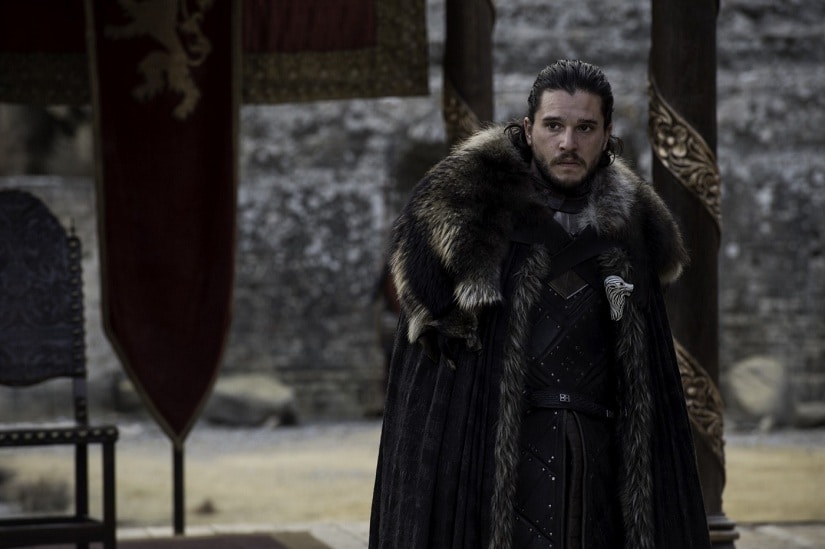 Jon Snow. Still from Game of Thrones season 7. Image via HBO[/caption] First, it set up that brilliant Dragonpit sequence, bringing together characters whose storylines had been so scattered for so long. It also gave us one of the best lines of dialogue in the season so far when Jon, refusing to lie to gain Cersei’s compliance to the armistice angrily tells Tyrion: “I’m not going to swear an oath I can’t uphold. When enough people make false promises, words stop meaning anything. Then there are no more answers, only better and better lies.” His words only show up to even greater degree, Cersei’s deceit, when it is later revealed. Her actions are Jon’s warning come true. Those same words also inspire Theon, who has a touching scene with Jon in the throne room at Dragonstone — just as they’re preparing to leave (Jon for the North, and Theon to rescue his sister). Theon tells Jon that he always seems to know what is the right thing to do, ever since they were children. Jon replies that isn’t true, eve if it seemed that way from the outside. And then, Jon provides Theon a conclusion to a conflict that the latter has struggled with all his life — the question of his identity. “You are a Greyjoy,” Jon tells Theon. “And you are a Stark.” Simple words, but ones that take a weight off Theon’s mind, as does Jon’s absolution for Theon’s worst transgressions: “It’s not my place to forgive you for all of it, but what I can forgive, I do.” (Incidentally, Jon may need to heed his own words about embracing dual identities once he finds out about his parents.) [caption id=“attachment_3994947” align=“alignnone” width=“825”] 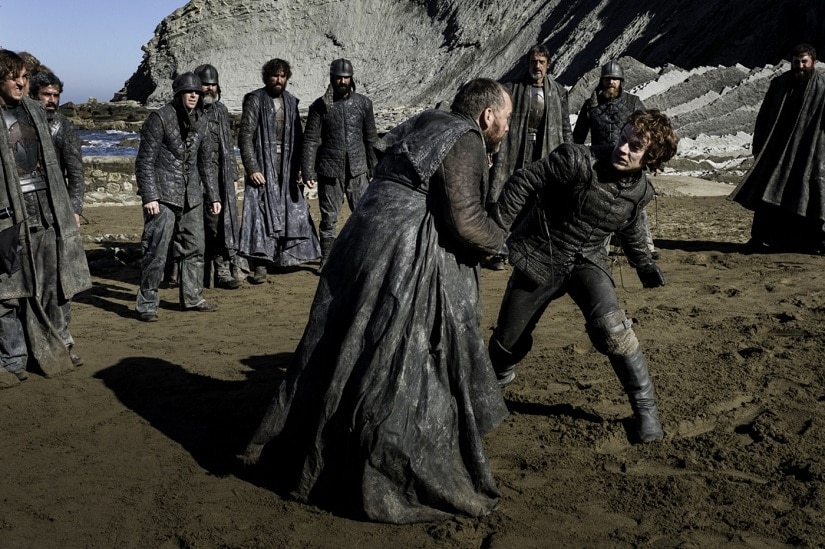 Theon Greyjoy. Still from Game of Thrones season 7. Image via HBO[/caption] [caption id=“attachment_3994951” align=“alignnone” width=“825”] 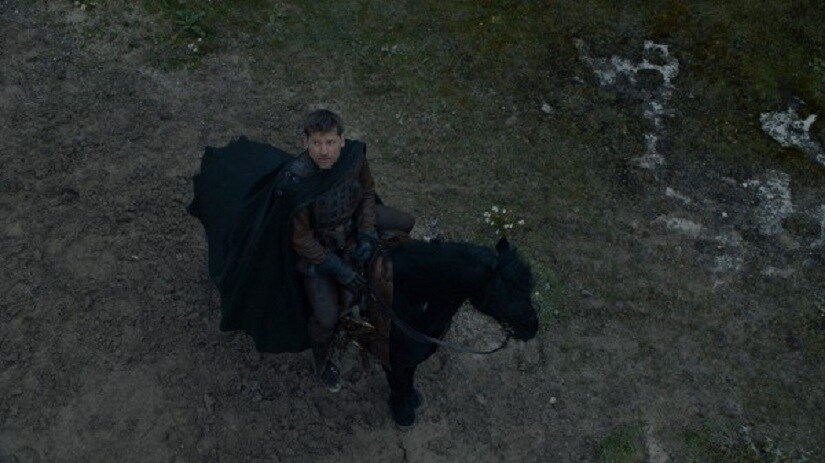 Jaime Lannister. Still from Game of Thrones season 7. Image via HBO[/caption] In King’s Landing, Jaime finally does what viewers have long wanted him to — shrugged off Cersei’s influence. While the altercation between them — his disbelief over the extent she’s willing to go to hold on to power, her disregard for what he thinks of her plans — is among the better scenes of the season 7 finale, it is bested by the one that immediately follows. As he walks away from Cersei, Jaime says: “I made a pledge, and I intend to honour that pledge.” We then see Jaime ride out from the city, pulling a glove over his gold prosthesis just as a snowflake flutters onto his hand, and melts there. The snow continues to fall over King’s Landing — winter has finally come even to the sunny South. Whether Cersei thinks it enough of a threat or not, the Long Night will extend to her fortress too. Also read — Game of Thrones: Jon-Daenerys' relationship follows a Westeros tradition (and we don't mean incest) Then of course there is the scene in which Jon and Dany consummate their relationship. For many, Sam and Bran’s exposition (and reveal of Jon’s identity as Dany’s nephew) juxtaposed with the visuals of Jon and Dany making love were a letdown. But again, this is device which tells us of the depth of their feelings, without Jon and Dany having to vocalise it to each other. With Bran ‘recalling’ Rhaegar and Lyanna’s wedding, when he tells of the couple: ‘He loved her and she loved him’, the visuals cut to first Jon and then to Dany. There is no need for words. And there is Ramin Djawadi’s ode to the couple — ‘ Truth’ (echoes of which are also heard in ‘Dragonglass’ and ‘See You As You Are’) — among the most poignant themes created by the composer for Game of Thrones. There’s a weight of sadness carried in its sound. [caption id=“attachment_3994955” align=“alignnone” width=“825”] 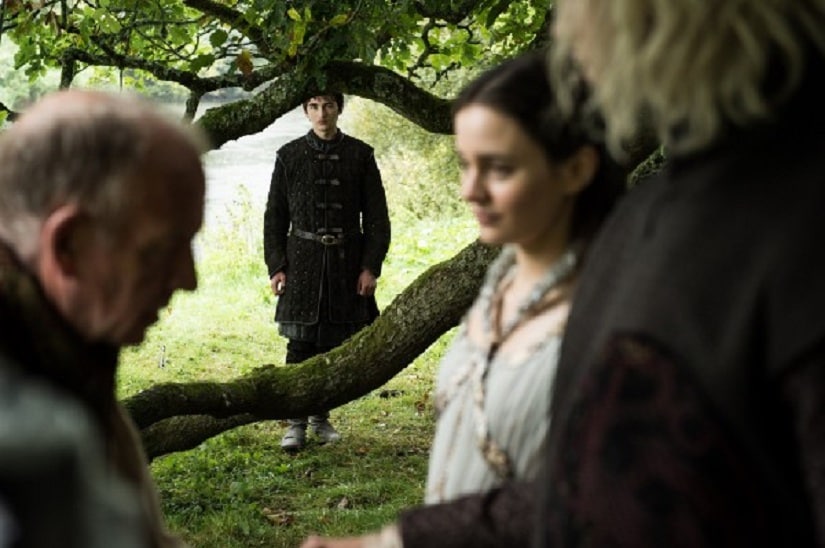 Rahegar-Lyanna’s wedding as ‘recalled’ by Bran. Still from Game of Thrones season 7. Image via HBO[/caption] [caption id=“attachment_3994957” align=“alignnone” width=“825”]  Dany and Jon. Still from Game of Thrones season 7. Image via HBO[/caption] Viserion shooting blue flames at the Wall as it comes crashing down may be the defining imagery of the Game of Thrones season 7 finale, but it is these quieter moments — when these characters we love take a stand about what is most important to them, not on the battlefield but within the spaces of their own hearts — that will ensure ‘The Dragon and the Wolf’ is in the time to come, acknowledged as one of the series’ better endings.
There has been harsh criticism over the Game of Thrones season 7 finale, but ‘The Dragon and the Wolf’ will, in time, be acknowledged as one of the HBO epic’s better endings
Advertisement
End of Article


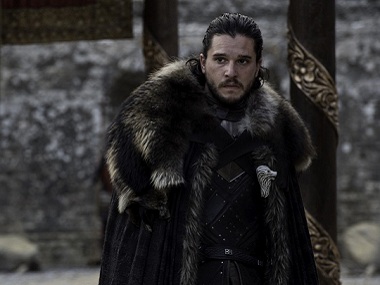)



